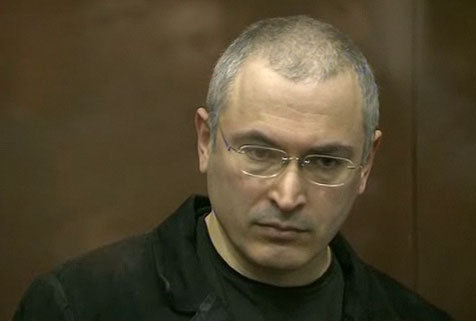MOSCOW, December 21 - RAPSI. A Presidential Council for Civil Society and Human Rights working group has analyzed the second YUKOS case and concluded that the Criminal Code has no provisions to qualify the actions of Mikhail Khodorkovsky and Platon Lebedev as a crime.
"Most of the experts said the Criminal Code has no provisions to qualify the actions as a crime," council member Tomara Morshyakova told journalists on Wednesday.
According to Morshchakova, the experts have disagreed with the idea that YUKOS' activities were criminal.
"The verdict implied an almost impossible task to qualify YUKOS' activities in oil production as criminal. Nine of 10 experts have considered the task impossible," Morshchakova said.
Experts also believe that the presumption of innocence was violated while hearing the case and passing the sentence. Further, the prosecution has failed to produce any decent explanations as to why Khodorkovsky and Lebedev had been "subject to multiple prosecution."
The YUKOS case has been one of the most high profile in Russia in recent years. In the early 2000s, the authorities accused the executives of YUKOS, then the country's largest oil company, of embezzlement and tax evasion. In 2005, the court sentenced Khorkovsky and his codefendant, former Menatep head Platon Lebedev to eight years in prison. Many in the West believe the case against YUKOS was politically driven, but Moscow flatly denies the charges.
In 2005, Khodorkovsky and Lebedev were sentenced to eight years in prison for fraud and tax evasion. In late 2010, a Moscow district court sentenced them to 14 years in prison for oil theft and money laundering. They were expected to be released in 2017, taking into account the time they had already served for their convictions from their first trial in 2005. However, on May 24, the Moscow City Court reduced their sentences by one year. They now may be released in 2016.



